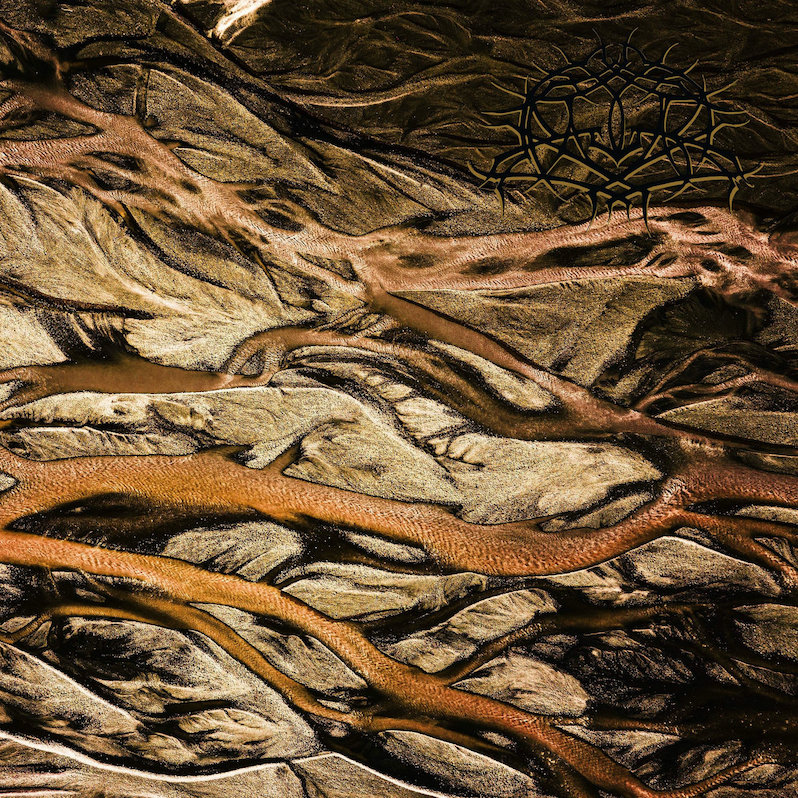Krallice : Psychagogue

It is the resident risk of experimental music to potentially find itself adrift from clear emotional or imagistic bearings. Krallice themselves are no strangers to this risk; though the risk-taking may accelerate exponentially in side offerings from units such as Encenathrakh, Xazraug and Ocrilim, this group has more than once journeyed deep enough into the realms of the avant-garde to potentially lose the thread for certain listeners. This is what makes Psychagogue such a fascinating and powerful record. Here they have seized upon certain emotional granularities that emerged from their last full length Crystalline Exhaustion, a record less than a year old, and have exploded them out to an album-length experience.
The primary change of this phase of Krallice’s career is Colin Marston’s move from guitar to synthesizers and a secondary drummer, an arrangement move started on Crystalline and continued here. The move is reminiscent of multiple periods of the illustrious career of prog stalwarts King Crimson, a noted influence on Krallice, particularly lineups such as the Bill Bruford/Jamie Muir percussion duo on Larks’ Tongues In Aspic or a particularly heavy variation of the double-trio lineup of Thrak or the triple-drummer lineup of the most recent period of Crimson. Where on Crystalline Exhaustion the group was clearly exploring the terrain of that potential setup still, alternating between pieces that felt grounded more in Marston’s recent work in synth-driven ambient material and ones that felt more clearly incorporated as a group, Psychagogue shows the group having effectively worked out all the kinks. It helps, of course, that this record returns to the loose formatting of their first phase, focusing on four lengthy pieces rather than a couple sizable works and a smattering of more bite-sized fare. As a result, the pieces feel not only more internally coherent, meshing more tightly in this new arrangement of instruments from the band, but also mentally easier to keep track of. Material like Krallice’s is already complex enough within a single song, so having even fairly lengthy pieces but smaller in number makes the emotional and imagistic contours of them easier to parse in fewer listens.
The result is a work that largely eschews the iciness and interstellar alienness of Crystalline Exhaustion for something closer to the existential emotive thrust of a record like Dimensional Bleedthrough or the tear-stained fury of Go Be Forgotten. Primary drummer Lev Weinstein’s touch here is soft, controlled, letting the wild blasts unfurl closer to a jazz drummer splashing color rather than a power-driven burst of force. The guitar and bass duo of Mick Barr and Nick McMaster seem largely focused on creating a black metal equivalent of ’70s Rush, the high-prog material of Hemispheres especially, where a player like Alex Lifeson is less interested in hogging the spotlight as much as contributing interesting and expansive chord voices that fill out a more complex emotional shape than what simpler or flashier guitar work might do. The guitar and bass tones especially seem to recall both the glassy beauty of Rush circa Grace Under Pressure or Power Windows while the bass growls with that prime Geddy presence, albeit without the ferocious plucking of that legendary player. This core trio allows Marston space to add either percussive highlights or spacious kosmische-inflected synthesizer harmonies, accentuating existing forms rather than performing as a lead instrument. Curiously, this leaves their material on this record without a clear lead instrument, each player focused on accentuating or dappling the other rather than bursting out.
The benefit of this approach is a deep and abiding sense of synchrony across the roughly 40 minutes found here. “Deliberate Fog” is a particular standout of this set, feeling like a fusion of the intense near-Deleuzian eruptiveness of Dimensional Bleedthrough, like being hurled through an existential accelerator priming you for the shredding of old thought, with the intense melancholy and cosmic pessimism and patience of Years Past Matter. “Arrokoth Trireme” is another fascinating song, intended as a sly nod to Nile but landing closer to a fusion of Emperor and Yes. At its iciest and most explicitly black metal, the song bleeds the same purples and blues of In the Nightside Eclipse while its deeply progressive song structure and the less overtly metallic sections recall the kind of organic and evolving beauty of Relayer or Close to the Edge.
It is tempting to perform a cardinal sin of criticism and give a track-by-track breakdown, especially given the small number of total pieces featured here; not offering specific thoughts on the opening and closing pieces has more to do with following that unspoken law rather than any clear shortcoming on their end compared to their peers. In fact, the only clear fault of the record is the curious choice to have the final song abruptly end. Closing in on 20 listens to the record now, the choice still leaves me puzzled, feeling disconnected from both the emotional shape and energy of the song in specific and the album flow as a whole. A small quibble like that though hardly sinks the record; on Psychagogue Krallice satisfactorily continue what Crystalline Exhaustion before it set about and in doing so becomes the best record of this period of Krallice’s body of work. Hopefully they are as aware of the successes of this new arrangement of instruments as everyone else is and produce more work in this mode, although given their tendency to experiment I wouldn’t be shocked if this was the last record this sort from the band either.
Label: Self-released
Year: 2022
Similar Albums:
Langdon Hickman is listening to progressive rock and death metal. He currently resides in Virginia with his partner and their two pets.




